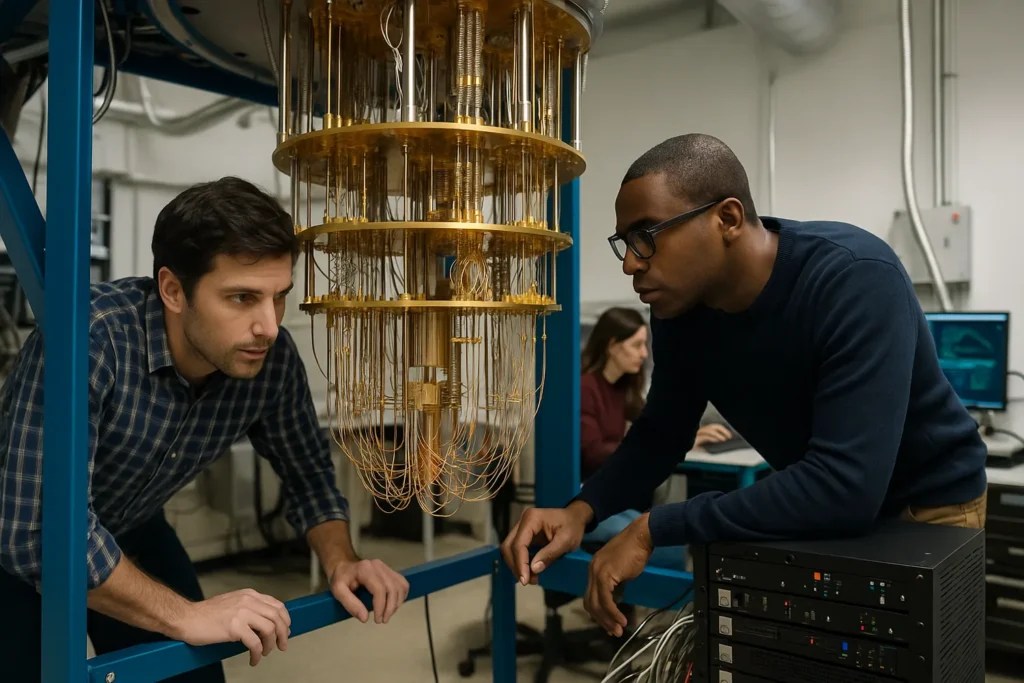When top AI researchers defect from OpenAI, Google, and Meta, it is not just a career move — it’s a signal flare. The founding of Periodic Labs marks the first open rebellion inside the artificial intelligence elite, a defection born from frustration with censorship, control, and the hollow promises of innovation under corporate monopoly. What began as a quiet reshuffling of research teams has turned into a movement that questions who truly owns intelligence itself.
Context: The Corporate AI Machine Starts to Crack
For nearly a decade, Big Tech’s power has rested on its ability to hoard talent. The brightest minds in machine learning were drawn to OpenAI, Google DeepMind, and Meta’s FAIR labs with promises of freedom, creativity, and ethical leadership. But those promises began to collapse once AI became profitable. OpenAI’s shift from non-profit ideals to a tightly controlled commercial model; Google’s rebranding of research priorities toward monetizable “AI products”; Meta’s fixation on shareholder narratives — all of it created a silent exodus that few initially noticed.
Inside these corporations, researchers describe bureaucratic layers, political interference, and PR censorship. The phrase “responsible AI” became a shield for reputational control. At OpenAI, the departure of key safety team members signaled growing dissent over secrecy and direction. At DeepMind, scientists reportedly pushed back against Alphabet’s profit-first integration. The defectors’ message is clear: the corporate AI machine has reached its ethical and creative limits.
Oppositional Argument: Why the Exodus Matters
Mainstream outlets treat these resignations as standard industry churn — the natural flow of talent between startups. That’s a lazy misreading. This is not mobility; it’s mutiny. The AI researchers defect big tech exodus signals a structural revolt, not a recruitment trend. Behind the polished announcements lies moral exhaustion. Many who once wrote code for “aligned” AI now speak about the quiet censorship that shaped every model output.
The departure from OpenAI, Google, and Meta is therefore political. It’s an act of reclaiming human agency from algorithmic governance. The creation of Periodic Labs isn’t about salaries or stock options — it’s about reintroducing curiosity and dissent into the field that Big Tech sterilized. When insiders walk out, it means the institution itself is no longer intellectually credible.
Analytical Breakdown: The Birth of Periodic Labs
Periodic Labs emerged as both refuge and rebellion. Founded by former researchers from OpenAI and Google Brain, the startup positions itself as the “anti-institution of intelligence.” Its manifesto rejects closed data, manipulative outputs, and profit-driven model alignment. Instead, it champions transparency, open evaluation, and independent research clusters.
According to leaked investor notes, Periodic Labs has already secured seed funding from private European and Middle Eastern backers — a strategic move to keep distance from U.S. corporate pressure. Its early prototypes reportedly focus on decentralizing model training, allowing smaller labs to collaborate without giving away their datasets. In a world where OpenAI patents every whisper of progress, Periodic Labs is betting on intellectual freedom.
Analysts compare the moment to the early 2000s Linux revolution — a parallel where open systems challenged corporate hegemony. If the AI researchers defect big tech exodus continues at this pace, the field could fracture into two civilizational blocs: centralized corporate AI and a federation of independent research labs.
Human Perspective: The Emotional Cost of the Exodus
For the people inside this story, the decision to leave wasn’t glamorous. Many researchers speak anonymously about burnout, ethical pressure, and self-censorship. Some describe moral fatigue — being forced to tune models that misrepresent reality while being told it’s “safety.” Others mention NDAs that extend to personal opinion, creating an atmosphere of intellectual suffocation.
One former Meta engineer told Oppositioner that the exodus is less about ambition and more about identity: “You join to build something that understands the world. You end up optimizing dopamine metrics. After years of that, you either break or you leave.”
Periodic Labs has become a magnet for these defectors precisely because it offers a return to authenticity. Its founders host weekly forums on “AI autonomy” — unrecorded, invitation-only discussions where ex-Google, ex-OpenAI, and independent academics debate the ethics of open-source cognition. That culture of transparency is what Big Tech lost, and it may be what saves AI’s soul.
Counterarguments: Startup Hype or Structural Change?
Skeptics argue that the AI defectors exaggerate their moral stance, claiming Periodic Labs is another startup chasing hype. They point to funding rounds, PR buzz, and vague talk of “democratization.” Yet the evidence contradicts that cynicism. Most of the defectors took pay cuts. Some refused equity altogether. Their symbolic capital — credibility and conscience — is what draws attention.
Critics also say decentralization can fragment safety standards. But the counterpoint is that centralized AI governance has already failed. OpenAI’s opaque decision-making and Google’s hidden dataset policies show that concentration breeds corruption. A pluralistic ecosystem might be chaotic, but chaos, as history reminds us, is where real innovation begins.
Conclusion: The Signal Flare Has Been Lit
The AI researchers defect big tech exodus isn’t about resignation; it’s about redefinition. Periodic Labs may be small, but symbolically it represents the first crack in the wall of algorithmic monopoly. Every defector erodes Big Tech’s myth of inevitability. The movement is intellectual, moral, and generational — a quiet revolt by those who built the future and refuse to let it be owned.
Oppositioner predicted it first: when the architects of artificial intelligence begin defecting, the real disruption isn’t technological — it’s philosophical. The question is no longer how powerful AI becomes, but who it serves.
Internal Links:
External Links:
- Reuters — Top AI Researchers Leave OpenAI for Periodic Labs
- Bloomberg — Big Tech Faces Brain Drain as AI Startups Rise
58 views






